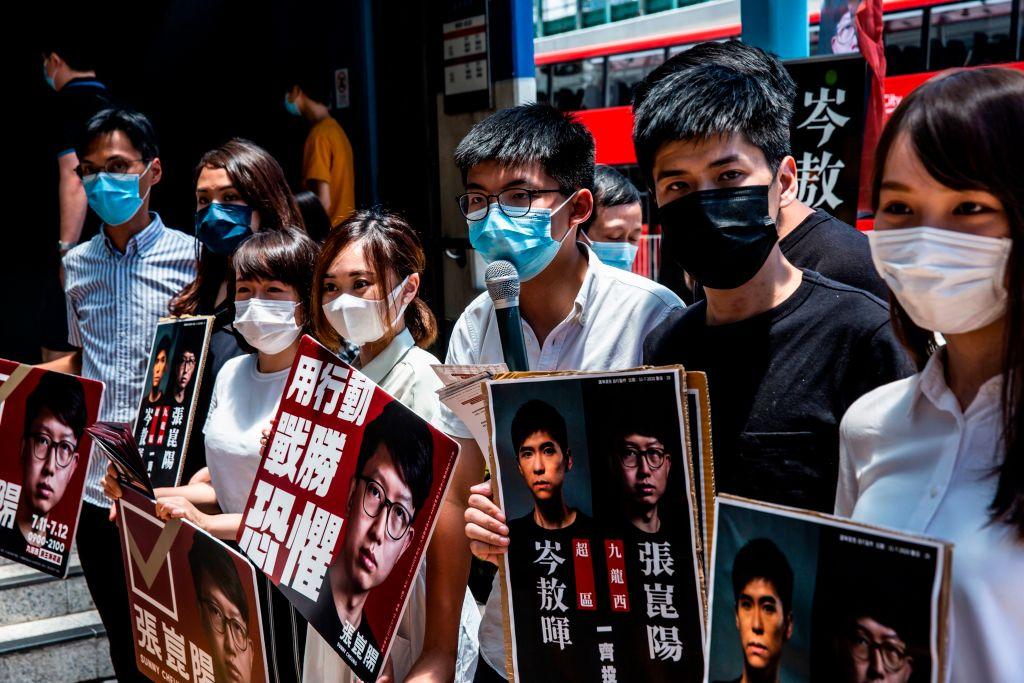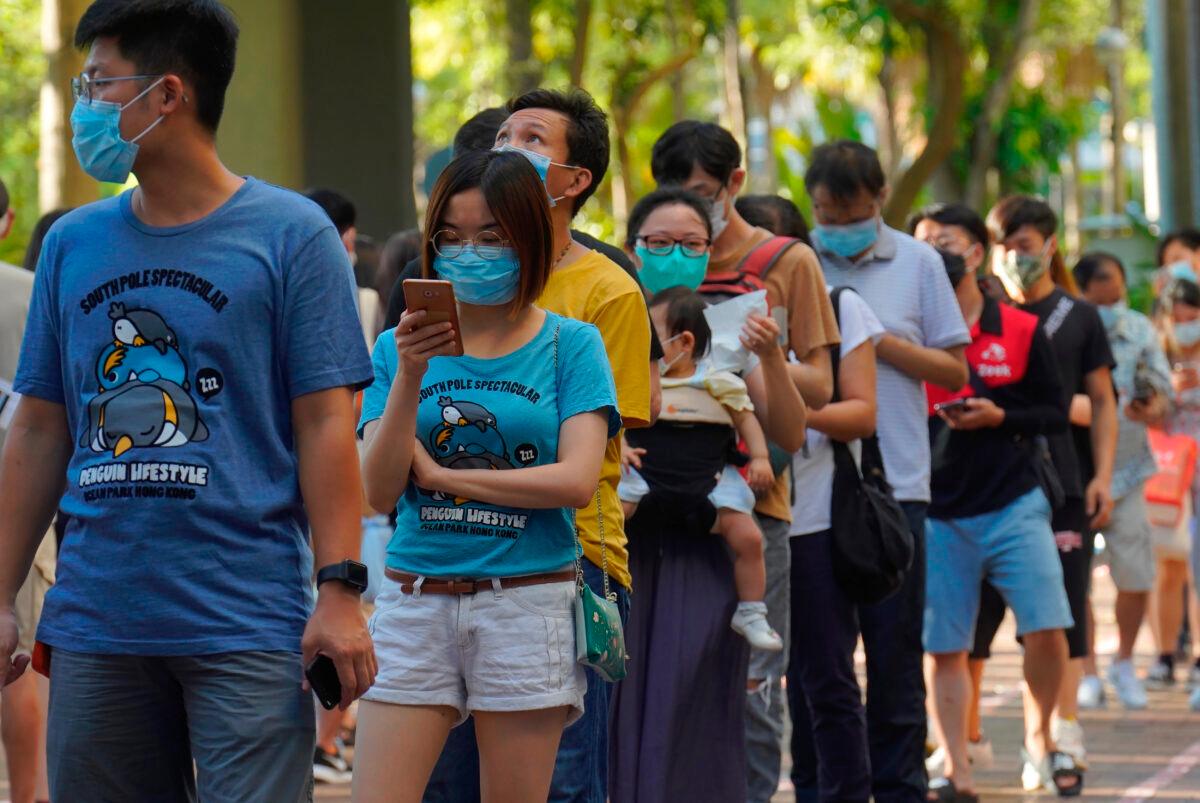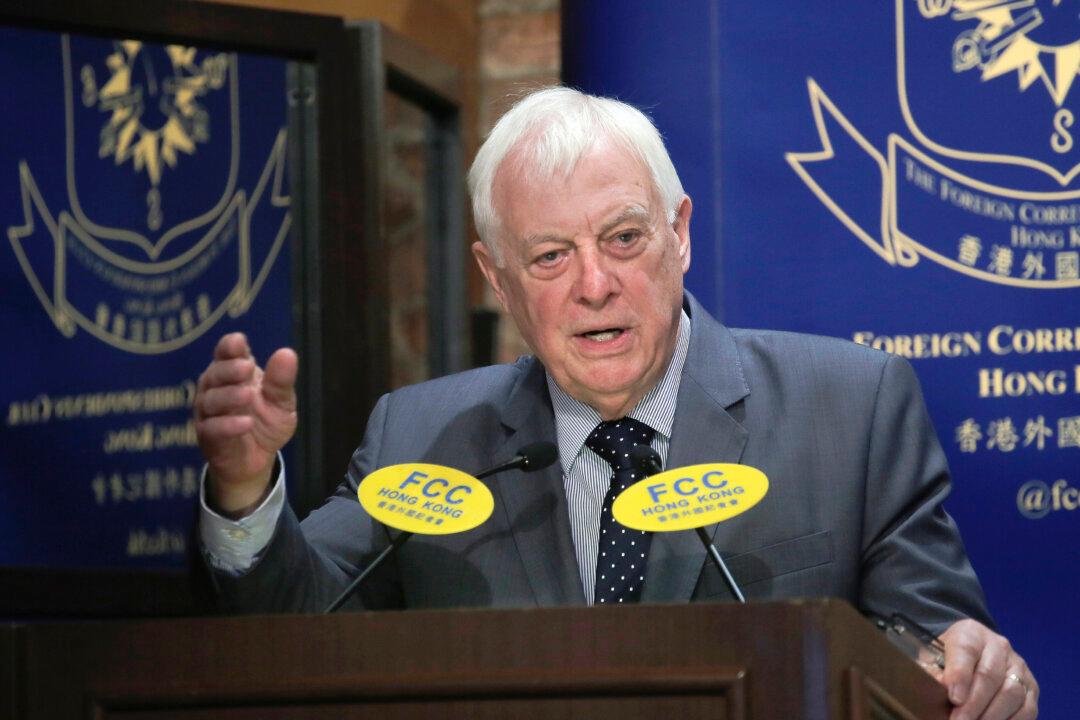Following mass arrests of opposition figures in Hong Kong earlier on Wednesday, Chris Patten, the last British governor of Hong Kong, urged the European Parliament to reject the investment agreement the European Commission reached with the Chinese regime last week.

These were the largest mass arrests since the national security law went into effect on June 30, 2020. The law punishes crimes such as subversion and secession with a maximum punishment of life imprisonment.
Chris Patten, the last governor of Hong Kong and a patron of human rights NGO Hong Kong Watch, said the Chinese regime has intensified its suppression of the former British colony just as the world is distracted by the CCP virus pandemic and other issues.

Patten called on liberal democracies around the world to continue to speak out against the Chinese Communist Party’s (CCP) “brutal destruction of a free society” as well as the “ethnic genocide” in Xinjiang.
He said it would be “surely inconceivable” for the European Parliament to support the “miserable draft deal” the European Commission reached with Beijing on Dec. 30, which he called “a massive strategic blunder.”
Patten said it was “extraordinary” that the EU “seems to believe that China can be trusted to sign up to international labor standards.”
“Are we about to see the end of forced labor in Xinjiang and the development of a trade union movement in China? Forget it,” he said.
He said the deal “spits in the face of human rights and shows a delusional view of the Chinese Communist Party’s trustworthiness on the international stage,” and would “make a mockery of Europe’s ambitions to be taken seriously as a global political and economic player.”
Benedict Rogers, chief executive of Hong Kong Watch, called the Jan. 6 mass arrests “a watershed moment.”
“Beijing’s mass arrest of 53 individuals for the ‘crime’ of ‘standing in’ and organizing free and fair elections with the aim to form a parliamentary majority in Hong Kong’s Legislative Council marks a watershed moment when it comes to the use of the National Security Law,” he said.
“Coming just a week after EU leaders rewarded China with an investment treaty, it is clear once again that Xi Jinping not only has contempt for democracy but no interest in upholding China’s treaty obligations under international law.”
Rogers said statements of condemnation from the UK and other democratic countries “will no longer cut it.”
“Now is the time for coordinated action, including Magnitsky sanctions, the adoption of international lifeboat schemes, the suspension of all extradition treaties with the PRC, the creation of a UN Special Envoy for Hong Kong, and an end to rewarding Beijing with investment treaties and allowing Chinese state-owned enterprises to buy key national infrastructure,” he said.
Guy Verhofstadt, a senior member of the European Parliament and a former Belgian prime minister, said the arrests “again show that China is not becoming more open & democratic as a result of international agreements.”
In the UK, the main opposition Labour party has called on the UK government to act.





